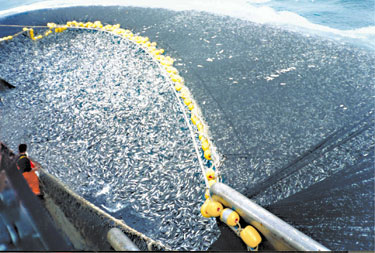… Overfishing was recognized as one of the world’s greatest and most immediate environmental problems in 2002, when it was first demonstrated that global catches of wild fish had peaked around 1989 and have since been in decline …
Overfishing. It’s one of those issues we hear about but don’t quite understand. It seems like every time I go to a restaurant or to a supermarket they have seafood available. When I go to the St Lawrence Market in Toronto the place is packed with seafood. So what gives? Well the truth is we as humans are superb fisherman with advanced fishing techniques and have worked diligently to eradicate the planet of marine life.
Ok. That was bit of a stretch. I don’t believe our goal is to eradicate all life in the oceans, but we are doing it just the same. We have all heard of the collapse of the Atlantic Cod fisheries in the North Atlantic in the 1990’s. Tragic yes. And now as we are moving into 2011, almost 20 years after the moratorium on cod, the fishery has not recovered. They are now predicting total extinction of this species in the not too distant future. Crazy considering the fish in this area were so abundant at the turn of the 20th century you could catch them with your bare hands. Literally.
The sad truth is this fishery is not the only casualty in the battle between man and the oceans, countless other species are being decimated at unsustainable rates…..sea bass, grouper, haddock, halibut, marlin, blue-fin tuna, salmon, sharks, sturgeon, shrimp, lobster…. just to name a few. The United Nations Food and Agriculture Organization reports that 70% of marine fish species are on the brink of collapse due to overfishing. Now don’t be fooled by the promise of fish farming, it is not a viable solution and farmed fish should be on your AVOID list. Fish farming not only introduces diseases to the fish and surrounding waterways due to overcrowding, but also introduces loads of antibiotics to control these diseases. Couple that with the fact it takes roughly 2-3lbs of smaller fish used as food to produce 1lbs of farmed fish and you can see right way this is not a sustainable practice.
What can you do?
So the first and most important thing you can do is to pay attention to what seafood you are eating and always ask where it is from, the exact species, and whether it is wild or farmed. To help you, here is a list of fish to consume and fish to avoid:
And of course read more, educate others and definitely try and watch the documentary “The End of the Line”. Here is the trailer for it:
